The kitchen is often the centerpiece of the home. It's where meals are prepared, conversations are had, days are planned and memories are made.
Since the kitchen is such an important place in most homes, creating a healthy kitchen is essential to a healthy body.
From the foods we choose to eat, to the tools we use to prepare our food, making your kitchen "greener" is a great step toward keeping your family (and our planet) healthier.
5 reasons a greener kitchen is better for your health
1. Less packaging + processed foods = more fruits + veggies
Fruits and vegetables don't have to come in packaging. Bulk foods tend to be ingredient-driven, leaving little room for processed foods. Most processed food items are packaged in one way or another.
By choosing foods with less packaging, you're also likely choosing foods that are closer to their original form - more whole foods. That means more antioxidants, more nutrients, more fiber, and more plant-based proteins. All of which positively influence our health.

2. Fewer toxins
Non-stick pans
Many non-stick pans contain harmful chemicals like polytetrafluoroethylene (PTFE) and Perfluorooctanoic acid (PFOA). When heated to high temperatures, they can release toxic fumes into the air. Exposure to PFOAs may increase the risk of cancer and cause other health issues.
Plastics
Let's be honest. Plastics are literally everywhere today, and the kitchen is no exception. But studies suggest plastics can have serious health impacts. Some plastics and canned goods contain BPA, which has endocrine disrupting properties that can interfere with your hormones, and can even impact brain development in the womb. When heating plastics on a regular basis (like in the kitchen), those nasty chemicals can migrate into your food.
Water
Water pollution can be a serious problem around the world. Though many cities have water filtration systems, clean water isn't available to everyone. Consider getting a water purifying system to reduce toxins in your water and keep you hydrated and healthy.
To reduce toxin exposure, choose kitchenware that's made from materials like stainless steel, glass, wood or cast iron. These materials won't leach any chemicals into your food. And they'll certainly last longer.
3. More cooking
Home-cooked meals are bound to be better for your health. When you cook at home, you know exactly what you're putting into your food, because you have full control. Restaurant meals can carry baggage in the form of added ingredients and hefty portions. And that's not a recipe for success.
Home cooking means just that. Home cooking. No pre-packaged meals here. Give me the real stuff. Dinner from scratch with whole foods and loads of produce. Cooking is one of the best ways to improve your health and nutrition.
4. Breathe easier
Household cleaners
Many cleaners contain ingredients that can irritate skin, eyes, and lungs, cause headaches, and may even contribute to the development of cancer. They can also release volatile organic compounds (VOCs) into the air. VOCs can contribute to respiratory issues, asthma and trigger allergic reactions. Manufacturers aren't actually required to list all the ingredients. So the reading labels can only help so much. Even so-called "green" cleaning products may contain these harmful chemicals.
Use simple and eco-friendly cleaning products like castile soap and water, baking soda and white vinegar. Check out our green cleaning basics for more chemical-free cleaning tips. Environmental Working Group has more information and environmental/health ratings for common household products. But no matter what you clean with, it's always important to clean in well-ventilated areas. Keep doors and windows open so the air is free to flow.

5. Lower stress
Reduce stress by simply having fewer things. That means fewer things to store, clean, and just plain think about. Ditch the mental baggage. Reuse and repurpose instead of running out to buy something new. Use mason jars for food storage, a quick breakfast or iced coffee.
When items serve many purposes, there won't be as many things to store. A sustainable mindset encourages a simpler life with less stress.
Bonus: Save money
Energy efficient appliances. Reusable items. And less packaging to pay for. You know the packaging is built into the cost, right? Eat package-free plants, produce, and whole foods instead. One set of all-purpose towels means no more buying paper towels. Bamboo utensils will replace every plastic fork and knife you'll ever come across. Tired of plastic ziplocks? Get a few beeswax food wraps.


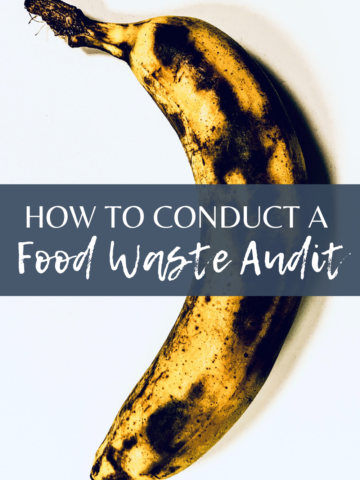

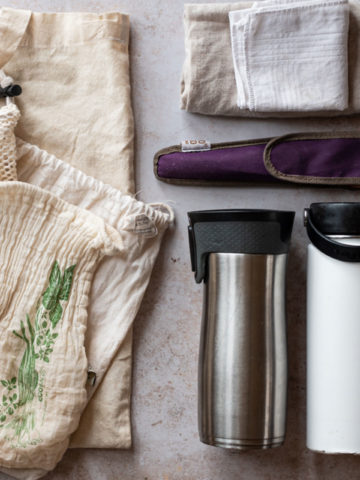
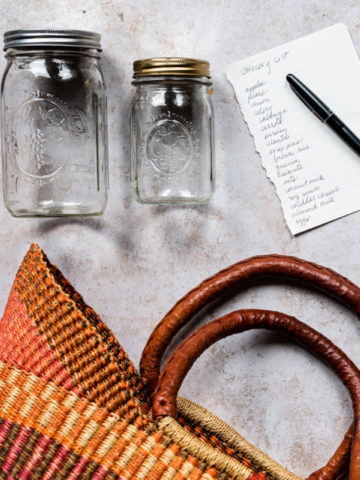
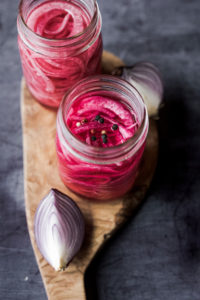


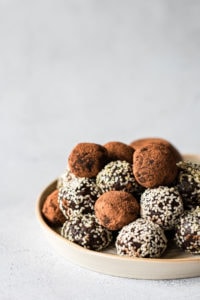
Leave a Reply